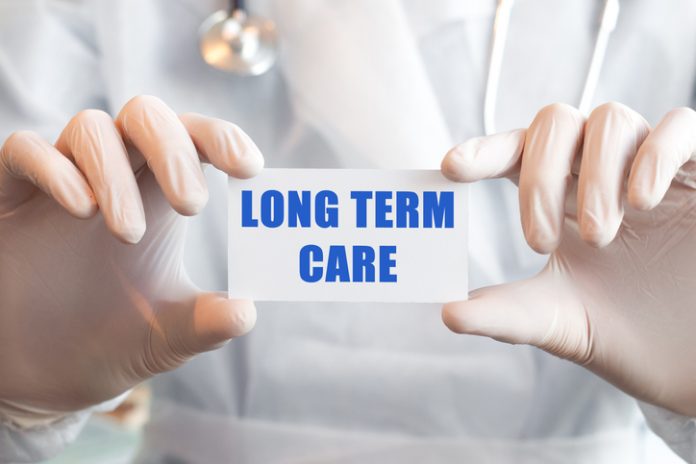By Stephen A. Moses
Many seniors own their own home, an asset that would pass on to their heirs in the event of their death. However, a new policy could allow heirs to keep all of that equity even if Medicaid pays the bills for their loved one’s long-term health care (LTC). The agency that advises Congress, the Medicaid and CHIP Payment and Access Commission (MACPAC), wants to make estate recovery voluntary.
Seniors hold over $7 trillion in home equity, according to the National Reverse Mortgage Lenders Association. Medicaid exempts $603,000 or $906,000 in equity per applicant, depending on the state. Researchers Robert Hest, Giovaan Alarcon, and Lynn Blewett in the Journal of Aging & Social Policy estimate that “nearly the entire elderly population would meet the home equity threshold.”
Medicaid protects almost all home equity from personal long-term care liability. This would give Medicaid recipients’ heirs windfall profits except under a long-term care social contract Congress and President Clinton created in the Omnibus Budget Reconciliation Act of 1993 (OBRA ‘93).
OBRA ’93 kept Medicaid LTC financial eligibility generous, allowing recipients to have large incomes as long as their private medical expenses were high. Under OBRA ’93, recipients are allowed to keep virtually unlimited assets: home equity, one automobile, prepaid burial plans, a business including the capital and cash flow, term life insurance, household goods, and personal belongings, even an IRA in payout status. But OBRA ’93 also required state Medicaid programs to recover the cost of care provided to recipients who retain this wealth from their estates.
This was the deal: Medicaid won’t devastate you financially if you need long-term care you can’t afford, but all you’ll get is whatever Medicaid provides (mostly nursing home care) and you’ll have to pay it all back out of your estate anyway. Lawmakers hoped people would take the risk of long-term care more seriously by planning earlier, saving, investing, and purchasing long-term care insurance.
Gaming Medicaid Care
Unfortunately, that did not happen. States didn’t implement estate recovery aggressively, the federal government didn’t enforce the law, and the media didn’t publicize the new estate recovery liability, so the public continued to ignore long-term care until they needed it, turning to Medicaid by default when they did.
At least the estate recovery requirement is still the law. State Medicaid agencies are enforcing it with various levels of success and the social contract for long-term care created by OBRA ’93 could still be effective if re-enforced and publicized.
With MACPAC’s recommendation to make recovery voluntary, retrieving estate funds to pay off the costs covered by taxpayers will never happen. Making matters more complicated, the commission has also proposed to limit collections from enrollees with assets who are in Medicaid-managed care plans for LTC. It has established “hardship” waivers on guidelines other than financial hardship. The Congressional Budget Office confirmed the MACPAC proposals would increase federal expenditures and reduce resources available to Medicaid.
When devising its new guidelines, MACPAC relied heavily on advice from Medicaid planning attorneys who make their livings helping upper-middle-class people qualify for Medicaid and avoid estate recovery, an obvious conflict of interest. I write about this in more depth in the April 2, 2021, LTC Bullet on the Center for Long-Term Care Reform website.
Without estate recovery, an enormous source of private LTC financing (home equity) is lost forever and Medicaid will channel the wealth to heirs at the expense of program resources that should go to the poor. Congress should reject MACPAC’s unwise advice.
Stephen A. Moses (smoses@centerltc.com) is the president of the Center for Long-Term Care.
Internet info:
MACPAC, “Medicaid Estate Recovery: Improving Policy and Promoting Equity, report to Congress on Medicaid and CHIP, March 2021: https://www.macpac.gov/wp-content/uploads/2021/03/March-2021-Report-to-Congress-on-Medicaid-and-CHIP.pdf
“New Guidance Could Make Long Term Care in the U.S. Worse (Guest: Stephen Moses),” The Heartland Daily Podcast, May 6, 2021: https://www.heartland.org/multimedia/podcasts/new-guidance-could-make-long-term-care-in-the-us-worse-guest-stephen-moses






















Steve is all too correct. That said, if you are in your 50s, the chances this will still be taking place when you are most likely to need long-term care should be of real concern. For many, long-term care insurance is going to be a most viable and affordable option. Contrary to what many people perceive, some coverage is better than non (and definitely more affordable). To get a sense of costs from the Association’s 2021 Price Index go to https://www.aaltci.org/long-term-care-insurance/learning-center/ltcfacts-2021.php
[…] around long-term care to make it harder for affluent seniors to qualify for Medicaid, said Moses. Under the current rules, wealthy families are permitted to keep senior family members’ assets, such as homes and cars, […]